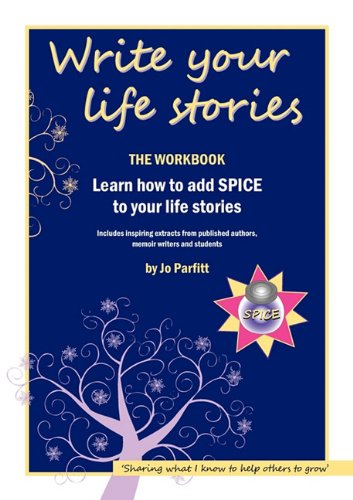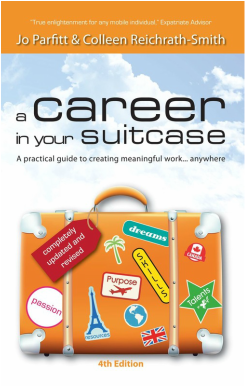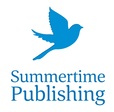 Two Sundays ago I attended a pasta making workshop, led my Italian friend, Barbara Reale, in the beautiful town of Delft. I had always wanted to learn how to make pasta and had felt rather daunted by the perfection required. But being scared of something is no reason not to do it, right? A bit like writing. As I kneaded the dough for what seemed like hours, left it for a while to cool in the fridge and spent time making a variety of fillings another compartment in my brain was busily trying to work out what this all had to do with writing. Then, towards the end, when we took our thinly rolled dough and used it to make capeletti, tortelli, ravioli with the meat, fish and spinach fillings we had prepared it hit me. Making pasta has everything to do with writing. Let me explain. Of course good writers need to be able to write well, but perhaps more importantly, the most successful writers will be very good at having ideas. New journalists are instructed to have an idea for an article and then write the same basic piece five different ways for five different publications. Similarly, pasta makers will make the dough and then create a variety of fillings, made into a variety of shapes until that one basic ball of dough has been made into three, five, ten or more different types of pasta. A book can be written in many ways, honed for a different market each time. A story can be written with a variety of endings, or with the story seen through the eyes of first one character then another. Professional writers need to flex their muscles and try out new media and new art forms. A short story can become a poem, an article becomes a book, a book becomes a workshop and so on. Only last week dancer Alaine Handa choreographed a dance based on my poem, Unity in Diversity, and that poem had been inspired by Matisse’s painting, La Danse. I may not be Italian, but I am pretty sure I think like one. Each of my books began as an article, became a variety of workshops and keynote speeches, some became poems, and recently my Write Your Life Stories live workshop became a home study program, itself made out of podcasts, video, a workbook and even stickers. So, think of your current idea as a ball of pasta dough and write a list of all the different things you could write, starting from that first, single idea. Some of you will know that I spent much of 2008 and 2009 writing a novel. It’s a new genre for me and I loved every minute of the writing process. Like trying out a new exercise class, writing in an unfamiliar style can flex muscles you didn’t even know you had and reawaken some that had lain stiff and dormant for far too long.
I may have written 26 books and had them published. I may have written hundreds if not thousands of articles and had them published by magazines and papers worldwide. I may have edited three magazines. But as a novelist, I still feel like the new kid on the block. I’m unsure of myself, not sure if anyone will ‘get’ me or even like my style. So, I did what I advise all my students to do – I got some feedback. First I asked three of my friends to read the manuscript and tell me honestly what they thought. The friends had been handpicked because they represented my ideal reader and were interested in contemporary women’s fiction with a bit of a literary flavour. Like I tell my students, I made sure that some of my readers knew my subject area (my novel is set in Dubai) and some didn’t. They all loved it! I breathed out. They all made many suggestions for improvement, which I listened to carefully and then humbly acted upon. When I thought I was ready at last, with my heart in my mouth, I began to send my synopsis and first three chapters to some agents. For the first time in my life no one said ‘yes’ immediately to my proposal and I began to bake a large quantity of humble pie. Today I have eight rejection letters in my collection. So, a month ago, at the Book Promotion Seminar, I met up with my fellow presenter, Stephanie Hale of Oxford Writers and RichWriterPoorWriter fame. She runs a business with a range of services pretty similar to my own, only she does fiction and I don’t. We got to know each other over a plate of Arabic mezze one lunchtime and I decided I was brave enough to ask her to take a look at my work. Again, I was only doing what I tell my students to do – getting feedback, not from a friend, but from a professional. I chose to send Stephanie exactly the same material that I had been sending to the agents. Today, I heard her reply: “Very engaging and interesting,” she wrote. “I stayed up late while I was reading this book and lost track of time – which is exactly the response you want from a reader!” Stephanie loved my dialogue and my characters but she could see exactly where I went wrong with my cover letter and synopsis and indeed the holes in those first few chapters. She gave me sound advice and criticism along with the praise. So, why am I telling you this? Why am I, a professional writer, sharing news that I am not brilliant and wonderful and marvellous? I am telling you this because I think we can all benefit not only from a wake up call from a professional, but that when we work in a new and unfamiliar environment we simply must get feedback in order to become confident and capable – and brilliant and wonderful and marvellous. Self-confidence as a writer can be hard won. It can take a pile of published (and paid for) pieces and a mountain of good reviews and thank you letters before we truly start to believe in our writing ability. As a journalist and writer of non-fiction I have that paper proof and with it confidence in my ability. I have even taught and mentored others to achieve the same success for over a decade. But until I have proof in my ability as a novelist I shall continue to seek out feedback from ideal readers and professionals. And while I received valuable advice from those ideal readers, there is nothing quite like the advice of a professional. Thank you, Stephanie! As you probably know, I offer a manuscript appraisal service too, just like Stephanie’s – only I focus on articles and non-fiction for now. One day, when I have a published novel under my belt, then I will offer that service too. But not yet. Until then I’ll leave that to the professionals! Every month I write a column for The Hague Online where I am Writer in Residence. This month I wrote about the value in working on a variety of long and short term projects.
If your big project is getting you down then maybe you too would benefit from something having bite-sized to tackle too? Read the whole column here. If you have been following this blog, you will be familiar with the name Julia McCutchen already. She and I share a strong belief in the importance of being authentic when we write. I thank her very much for her guest post, here, below:
Authenticity has become a buzz word over the last few years and increasingly appears in connection with many different aspects of our lives. So why is it important for writers? Authenticity is one of the best ways for writers to stand out from the crowd and achieve genuine success over the long term as a published author. In the world of writing and publishing, major changes in technology and retailing are gathering pace. As traditional publishing becomes more challenging, new opportunities are opening up for writers to reach out to readers directly. As a result, the marketplace is becoming increasingly crowded making it much harder for each individual writer’s voice to be heard. Yet when you write and speak with your true authentic voice, you stand out from the masses because no one else can express what you have to say quite like you do. Finding your authentic voice – the original contribution you have to make to the world – is one of your greatest strengths as a writer. In fact authenticity augments the criteria which have always applied to successful authorship, namely original ideas, powerful writing and charismatic appeal to your audience. When you combine the real you, who you are beyond all of the roles you play in life, with your skills and expertise as a writer, you are able to deliver an authentic message and share memorable stories with your readers. This is the level of conscious creativity which opens the way for you to realise your vision of successful published authorship over the long term. And this is one of the main reasons why authenticity is the key to success as we enter the new decade where new values are changing the very fabric of our lives. So how do you discover your authentic voice and apply it to your writing and all activities relating to your authorship?
We are so engaged in ‘doing’ that we have forgotten how to ‘be’, and perhaps even more importantly, the enormous value of simply being to balance out the doing. The stillness, silence and space you experience from a period of quiet time each day will nurture your creative soul and open the way for you to access your true authentic voice.To your conscious and creative success! © Julia McCutchen 2010. Julia McCutchen is the founder & creative director of the International Association of Conscious & Creative Writers (IACCW). A former managing director & publisher (Element, Random House), Julia has over 20 years’ experience of publishing and a track record that includes UK no 1 and international bestsellers. Julia is passionate about opening the way for people to discover their authentic voice – on the page and in the world. For free articles, audios and videos for writers. visit www.juliamccutchen.com. For a FREE Special Report including a 10 Point Action Plan to discover your authentic voice, plus information about the benefits of joining the IACCW writer’s community, visit www.iaccw.com  They are always telling you that the best thing to write about it what you know, right? I have based my 25 years as a paid author and journalist on exactly this premise. There is no doubt that it is easier to write about something you know well, than to have to do tons of research before you can write about something you don’t. In 1997, after 10 years abroad, living in three countries, following my husband from England to Dubai to Oman and onto Norway, I had learned how to create and maintain a portable career based on what I loved to do. I had literally, beeen there, done that and got the tee shirt. So it was a no brainer for me to write a book about it. The book is called A Career in Your Suitcase, is now in its third edition, has sold over 5,000 copies and has made people believe I am an expert on this topic, which has, in turn, got me speaking engagements worldwide. If you would like to find out how I did this, what mistakes I made, and what I got right first time, then please read the article on my journey at The Publishing Academy, here: |
�
All the latest news from the team at Summertime Publishing
As an Amazon Associate, we may earn a commission from qualifying purchases. This does not affect the price you pay or your consumer rights.
Archives
June 2024
|

